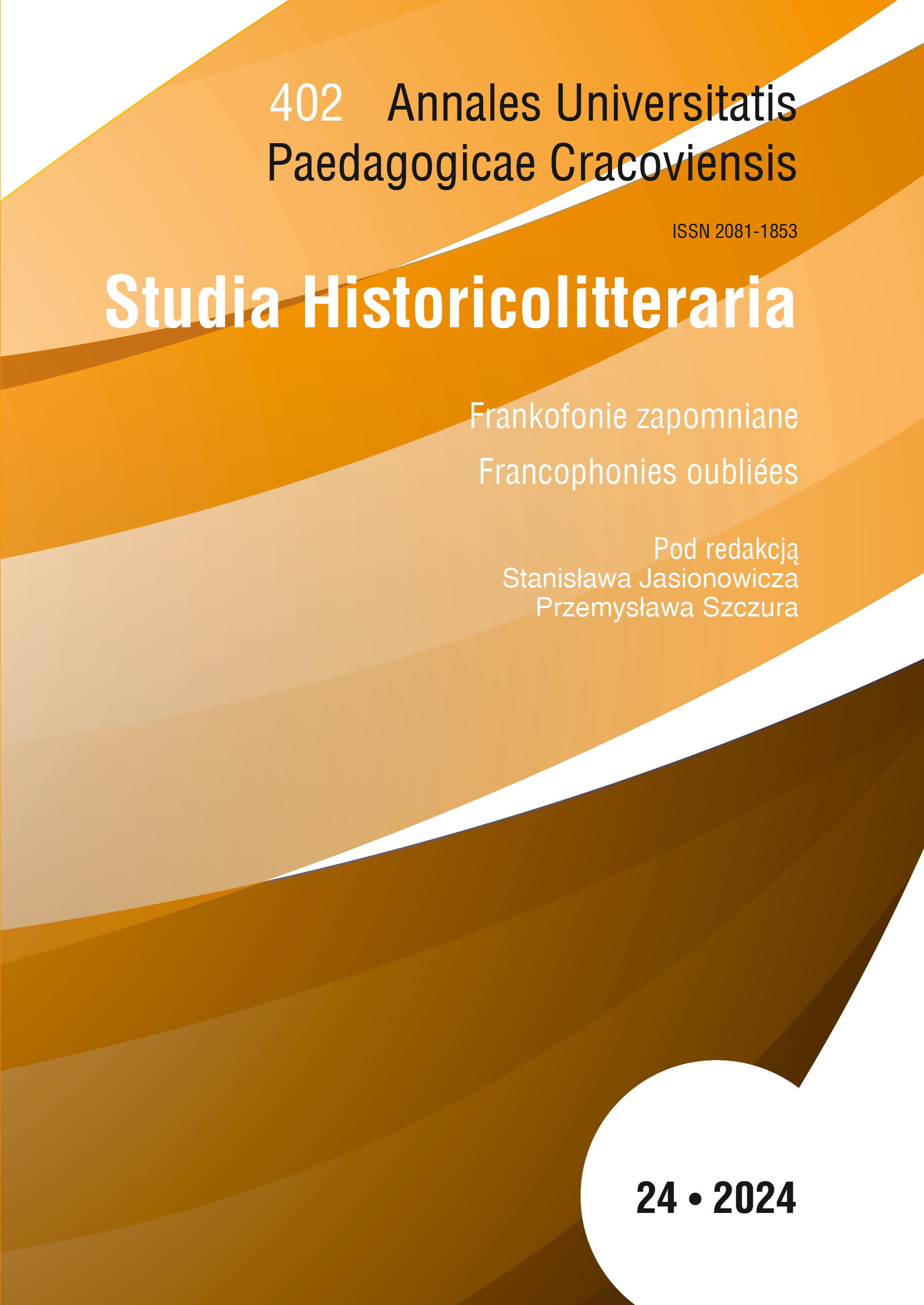Romain Gary dans les pas de Conrad… francophonie sublimée ou francophonie déchirée?
Main Article Content
Аннотация
Romain Gary, born in Wilno, liked to think of himself as a sort of “French Conrad”… with a touch of Gogol. He is the very example of a fertile polyglossia, a gift for languages that led him to a Francophonie full of inventiveness and transgression, constantly taking liberties with the language he had adopted and which he ended up happily reinventing under the pseudonym Ajar. Behind his desire to assimilate and his literary successes, he insisted on maintaining a form of strangeness, which became increasingly visible in his work. It’s as if it’s all about not forgetting where you come from… even and especially when you achieve the greatest literary recognition.
Скачивания
Article Details

Это произведение доступно по лицензии Creative Commons «Attribution-NonCommercial-NoDerivatives» («Атрибуция — Некоммерческое использование — Без производных произведений») 4.0 Всемирная.
ПОЛИТИКА АВТОРСКИХ ПРАВ
Издатель «Annales Universitatis Paedagogicae Cracoviensis. Studia Historicolitteraria» имеет право использования и распространения всех опубликованных в издании материалов на основании договора неограниченной во времени неисключительной лицензии - предварительно заключенного на неоговоренное время с каждым автором конкретного произведения на оговоренных в том договоре условиях использования.
ПОЛИТИКА ОТКРЫТОГО ДОСТУПА
«Annales Universitatis Paedagogicae Cracoviensis. Studia Historicolitteraria» это издание с открытым доступом, а все его содержание доступно бесплатно для пользователей и организаций на основаниях неисключительной лицензии CreativeCommons (CC BY-NC-ND 4.0). Пользователи могут читать, скачивать, копировать, распространять, производить поиск или переходить по ссылкам к полным текстам статей в этом издании без предварительного согласия издателя либо автора при условии указания источника доступа и авторства данной публикации. Это согласуется с определением открытого доступа BOAI (http://www.soros.org/openaccess).
Библиографические ссылки
Bernard-Léger S., L’oralité du skaz et la voix de l’Autre, de Gary à Ajar, [dans:] Romain Gary,une voix dans le siècle, éd. J. Roumette, A. Schaffner et A. Simon, Paris 2018, p. 83–90.
Cahier de l’Herne « Romain Gary », Paris 2005.
Diver R., La Russie des « Enchanteurs », ou l’art de tromper son monde, « Littératures » 2007, n° 56, https://www.persee.fr/doc/litts_0563–9751_2007_num_56_1_2045 (consulté le 23.03.2024).
Gary R., Chien blanc, Paris 2001 [1970].
Gary R., La nuit sera calme, Paris 2002 [1974].
Gary R., Pour Sganarelle, Paris 2003 [1965].
Gary R., L’Affaire homme, Paris 2006.
Gary R., La Promesse de l’aube, Paris 2010 [1960].
Gary R., Romans et récits, t. 1–2, Paris 2019.
Grenier R., Le citoyen de la rue du Bac, « Littératures » 2007, n° 56, p. 13–26.
Morand P., Journal inutile, t. 2, Paris 2001.
Pavlowitch P., L’Homme que l’on croyait, Paris 2005 [1981].
Pleuchot V., Les « Conrad français », une photo de famille jaunie, « La Revue des lettres modernes » 2021–8, n° 3, p. 239–258.
Pleuchot V. et Roumette J., Introduction. Le chaînon manquant de l’histoire littéraire française du XXe
siècle, « La Revue des lettres modernes » 2021–8, n° 3, p. 11–30.
Poïer-Bernhard A., Romain Gary im Spiegel der Literaturkritik, Frankfurt am Main 1999.
Roumette J., Le nihiliste au placard: « Lady L. » de Romain Gary ou Conrad contre Dostoïevski, « Modernités » 2011, n° 33, http://books.openedition.org/pub/8190 (consulté le 23.03.2024).
Roumette J., Du caméléon au métèque. Masques et résurgences de la figure de l’étranger chez Gary, « La Revue des lettres modernes » 2021–8, n° 3, p. 157–176.
